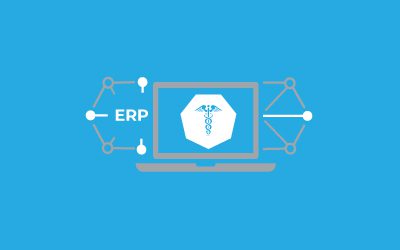You might not think of healthcare as an industry suitable for Enterprise Resource Planning (ERP) software. ERP is for operations, accounting and logistics, right? Yes, right… but if you work in healthcare, you know it’s a business—a multi-trillion-dollar business. Running a healthcare business is about delivering great healthcare outcomes while maximizing Return on Investment (ROI).
Consider the Magnetic Resonance Imaging (MRI) machine. Its primary purpose is to help diagnose diseases. But, the MRI machine is also an asset that can cost up to $3 million. Ensuring that such an asset is properly amortized, with strong ROI has a lot to do with financial management and data analytics. It also has to do with integrating disparate IT systems that give healthcare business mangers the ability to achieve their strategic objectives. This is where ERP shines. ERP offers many benefits for healthcare organizations. Here are five noteworthy ones.
1) Powerful data analytics
Healthcare businesses run on data. The more effectively you can monitor and manage all the various types of data that sit in multiple systems in a healthcare business, the more effectively you can run the organization. ERP solutions, especially modern cloud ERPs, are ideal for analytics and business intelligence (BI). They provide reporting and data visualization for budgeting, patient outcomes, employee scheduling and many other elements of a healthcare operation.
2) Better delivery of patient care
An ERP system is able to store details about patients and make them available to the departments in the organization that need them. Integrating with medical record systems, ERP keeps patient data secure and accessible for all relevant stakeholders.
3) Electronic storage of data about patients and business operations
Healthcare providers must keep essential business and patient in secure, manageable systems. An ERP solution provides a centralized, easy-to-use platform that is able to handle large, varied volumes of healthcare data. Modern ERPs can provide the security and compliance required for healthcare, too. Users can easily update data on the system as needed.
4) Strategic planning potential
If your healthcare business is expanding or contemplating a change in direction, the data you get from an ERP can be useful in determining the optimal strategic plan. ERP data enables you to identify areas for focus and improvement. It can highlight opportunities for growth and increased profitability going forward.
5) Better financial management
ERP solutions are designed for financial management. They make it possible for a healthcare business to track operating costs, patient payments and more. With accounting workflow automation, ERP systems contribute to greater productivity in financial operations as well as reductions in errors.
Modern cloud-based ERPs are also designed for integration. Learn more in 10 Reasons Healthcare Companies are Moving to the Cloud. They facilitate inter-operation between the disparate systems that comprise the complete healthcare IT environment. Integration of systems can mean viable integration of departments and teams, as well—solving one of the great challenges of healthcare management, which is the silo-oriented nature of the organization. ERP breaks down barriers with application integration.
We have worked with healthcare businesses that deploy ERP to improve their operations, delivery of care and financial performance. If you want to learn more about how cloud-based ERP can drive positive changes in your healthcare organization, contact us for a demo and free consultation.


